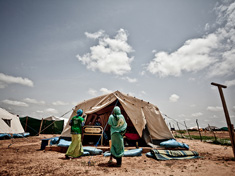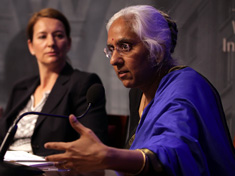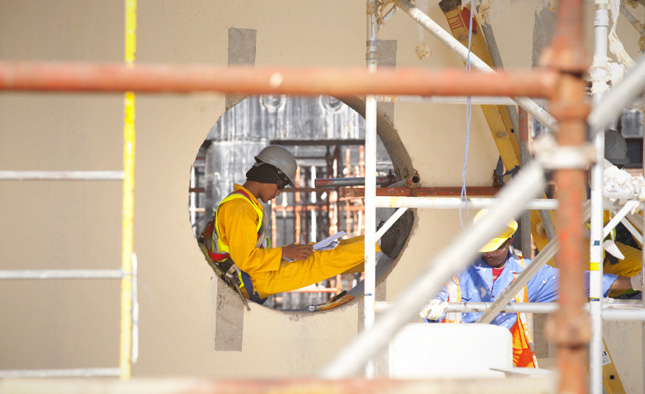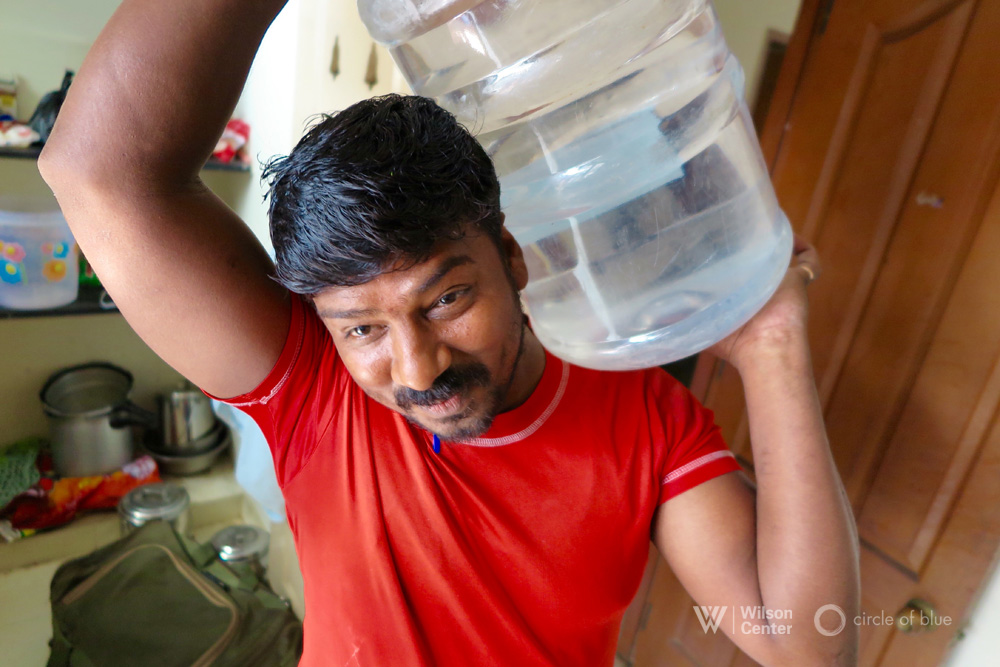-
Wilson Center’s Lisa Palmer Launches ‘Hot, Hungry Planet’
›
A steadily increasing global population, growing food demand, and changing climate necessitate new kinds of thinking in agriculture but also fields like public health and energy, concludes a new book, Hot, Hungry Planet, by former Wilson Center Public Policy Scholar and current Senior Fellow at the National Socio-Environmental Synthesis Center Lisa Palmer.
-
Christophe Angely on Overcoming Pessimism for the Sahel
› The Sahel region of Africa is a wide band that marks the transition from the Sahara Desert in the north to the wetter, sub-tropical regions in the south. The Sahelian countries have some of the most rapidly growing populations in the world and have faced significant environmental change over the past century. In recent years, insurgencies have surged in several countries, new terrorist groups have become active, there have been several droughts, and migration has increased.
The Sahel region of Africa is a wide band that marks the transition from the Sahara Desert in the north to the wetter, sub-tropical regions in the south. The Sahelian countries have some of the most rapidly growing populations in the world and have faced significant environmental change over the past century. In recent years, insurgencies have surged in several countries, new terrorist groups have become active, there have been several droughts, and migration has increased. -
The Right to Life and Water: Drought and Turmoil for Coke and Pepsi in Tamil Nadu
› -
Too Much, Too Soon: Addressing Over-Intervention in Maternity Care
›
For years, the primary approach to improving global maternal health was additive – to increase capacity to address shortfalls in clinics, doctors, supplies, information, and skilled care. Today, however, some women are experiencing issues related to the opposite problem: too much.
-
A Little Respect: Saraswathi Vedam on Reducing Over-Intervention in Maternal Care Through More Autonomy
› Governments and health organizations have made remarkable gains in reducing maternal mortality and morbidity rates around the world. Much of those gains have been driven by increasing capacity, directing more women to hospitals and clinics to ensure they get modern medical care. Increasingly, however, experts are realizing that this push has brought challenges of its own.
Governments and health organizations have made remarkable gains in reducing maternal mortality and morbidity rates around the world. Much of those gains have been driven by increasing capacity, directing more women to hospitals and clinics to ensure they get modern medical care. Increasingly, however, experts are realizing that this push has brought challenges of its own. -
A Changing Environment Threatens Worker Safety and Productivity
›May 11, 2017 // By Sara Merken
The implications for a warmer climate are many, but perhaps one of the most frequently overlooked is what it could mean for worker safety and productivity in certain sectors of the global economy.
-
In City Under Stress, Chennai’s Water Bottlers Build a Thriving Business
›CHENNAI, India – T. Rajan tried all manner of entrepreneurial enterprises. He sold scrap paper and cardboard to recyclers. He built a street corner chai and cigarette cart, and repaired truck and bus tires. He started an office cleaning service for high-tech companies in the growing IT sector south of the city center. None of these delivered the financial returns and workday flexibility of selling clear, sky blue, 20-liter water “cans” in Chennai’s immense bottled water industry.
-
The Business Case for Sustainable Development Is Real and Growing
›In 2000, the United Nations established the Millennium Development Goals (MDGs) with the goal of creating a global partnership for development. The formation of the MDGs created a foundation for collaboration and encouraged cross-sector partnerships to reduce poverty but also promote issues like environmental sustainability and gender equality. To carry on momentum from the MDGs, 17 Sustainable Development Goals (SDGs) were established in 2015 to further encourage partnerships between civil society organizations, the private sector, academic institutions, and more. Increased private sector engagement in development is a major goal of the SDGs – and we would argue that it is crucial to their success.
Showing posts from category global health.


 The Sahel region of Africa is a wide band that marks the transition from the Sahara Desert in the north to the wetter, sub-tropical regions in the south. The Sahelian countries have some of the most rapidly growing populations in the world and have faced
The Sahel region of Africa is a wide band that marks the transition from the Sahara Desert in the north to the wetter, sub-tropical regions in the south. The Sahelian countries have some of the most rapidly growing populations in the world and have faced 

 Governments and health organizations have made remarkable gains in reducing maternal mortality and morbidity rates around the world. Much of those gains have been driven by increasing capacity, directing more women to hospitals and clinics to ensure they get modern medical care. Increasingly, however, experts are realizing that this push has brought challenges of its own.
Governments and health organizations have made remarkable gains in reducing maternal mortality and morbidity rates around the world. Much of those gains have been driven by increasing capacity, directing more women to hospitals and clinics to ensure they get modern medical care. Increasingly, however, experts are realizing that this push has brought challenges of its own.



